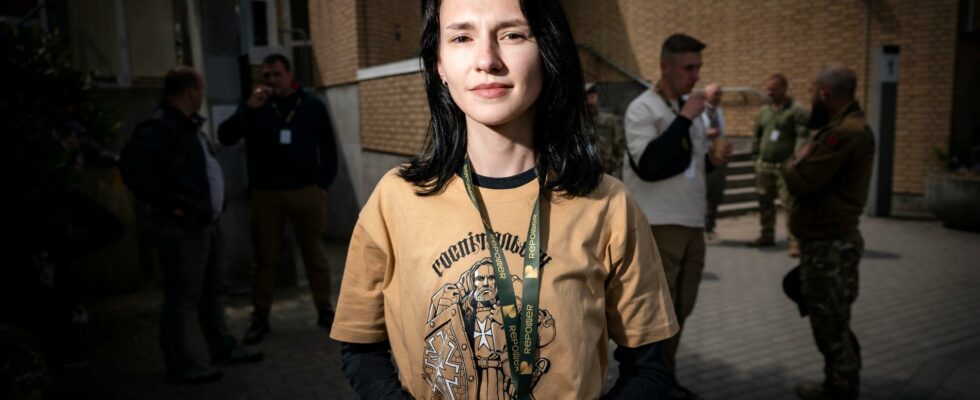unsaveSave
Olena Herasymiuk, volunteer nurse.
1 / 4Photo: Johan Nilsson/TT
Combat medics directly from the Ukrainian front are in Sweden for a short breather. How do they cope?
– I look at the injured person and say to myself: It’s not me who feels pain. I must be strong, I must be like a rock.
Olena Herasymiuk’s job is to evacuate wounded from the front in Donetsk. For seven years she has worked as a nurse in a volunteer organization and it has fundamentally changed her.
– Healthcare, it’s so hard. It’s blood, it’s trauma.
Yevhen Horeev, a combat medic in the Kherson region, comes to the respite days in Scania from an island in the Dnieper river, just four kilometers from the front line against Russia. There, he is the only healthcare graduate, with responsibility for 127 people.
The worst thing during the nine years he worked in the military is seeing soldiers die. His eyes tear up when he talks about it.
– You never forget it. Even if you know exactly what procedures you must follow, it is very difficult to realize that there are situations where you cannot do anything.
“The hardest”
– Those moments are hard to accept. That is the most difficult.
The daily telephone contact with his family, wife and two small children, makes him stand out. It feels safe that they are in a safe place in central Ukraine and they are his driving force.
The approximately 100 combat medics from Ukraine are allowed to rest in Skåne for ten days. The days are filled with meditation, mental coaching, meetings with Swedish healthcare staff, guided tours and fun experiences.
It is the fifth time such a trip has been organized to Sweden. Many of those who are here have a daily life where death and suffering are constantly present, says Lesia Melnychuk, communications manager for Repower Ukraine.
– We take them from hell and place them in a perfect environment, full of love and respect.
“Need hope”
Combat medics share soldiers’ experience that civilians do not understand the horrific situations they are in. They keep quiet to protect their relatives, but the consequence is that they are misunderstood, says Lesia Melnychuk.
– It is important to show them that there is another life. Many of them believe that they will die soon. They need hope, they need to dream of a normal life.
For Swedish healthcare personnel, the visit means a unique chance for new insights. War brings difficult ethical questions when the large number of injured forces hard priorities, says Philipp Martin, senior trauma physician at Skåne University Hospital
– I fear the day I am exposed to it.
